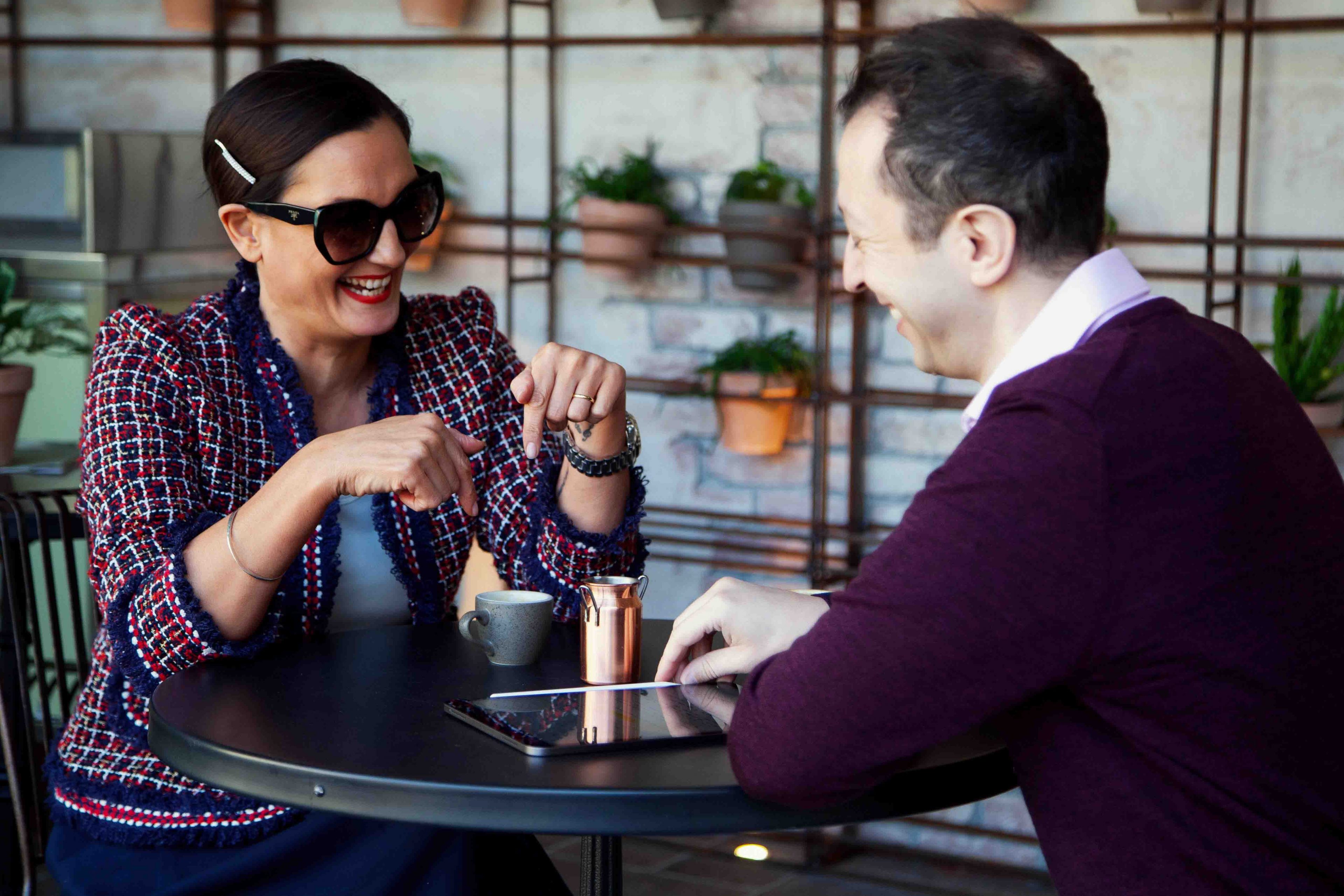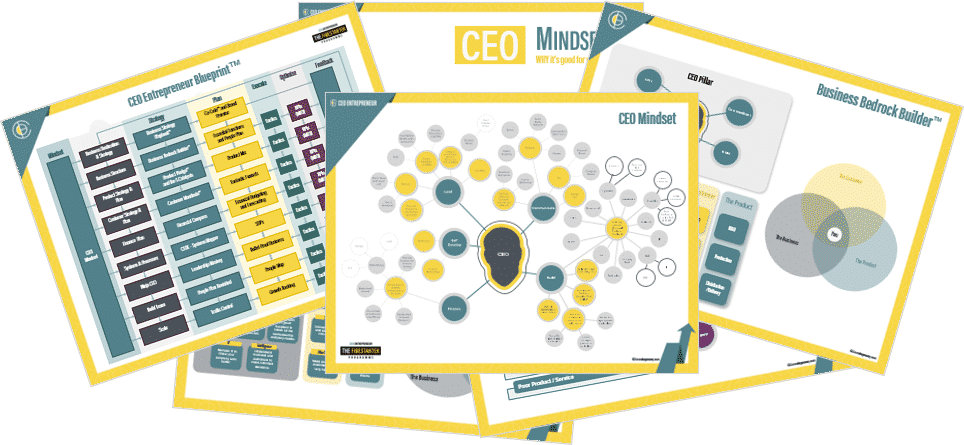I’m sure we’ve all been there. We save up and go to a workshop or a talk on how to improve an aspect of our business. We sit there, frantically writing notes, getting all excited about what we’ve learnt and how it’s going to massively improve our business. We leave feeling so inspired! Then we go home… .and don’t apply it.
The same can be true in many aspects of our lives. How many times have you read a great self-development book and put it back on the shelf to gather dust, or listened to a great podcast on the way to somewhere and completely forgotten about it when you eventually get home?
Knowledge is power?
We’ve all heard the phrase ‘Knowledge is Power’. This is what we are taught, and I would agree to an extent. Knowledge is power. If we understand something, we can move forward, and the more we learn, the more tools we have to improve and grow. But it isn’t the whole truth. The real power is knowing what to do with the knowledge we accumulate and actually putting it into action, which as we’ve discussed seems to be what holds many of us back.
Where is the action?
Many of us may beat ourselves up about this. It seems so simple. Read the book, take action. So, what stops us? Well, don’t be so hard on yourself because actually there is a reason for this flaw in our well-intentioned plans. Quite simply, we are approaching learning in our business in the same way that we have learnt over the years through school, continued education and maybe in employment too. The way we have learnt to learn is inefficient in many cases.
Passive learning starts at school
At school, children are taught a variety of subjects throughout the day. They learn new things and then what are they taught immediately after learning? To sit down and be quiet. After learning something, it’s time to go out to play, to sit quietly and learn something new. There are opportunities to practice, but it’s all relatively passive. Children are taught, they take it in (or not), they sit down, do as they are told, and then learn something else. The creativity and the will to put that learning into practice is too often taken away.
I’ll give you an example. A child learns about seeds and how they grow into plants. They are excited about what they’ve learnt and have the initiative to save an apple pip from their snack and wants to plant it (active learning). They are told, now isn’t the time and they can do that when they get home. The moment passes and no action is taken.
Continuing in this pattern of learning
As adults, we repeat this pattern as it has become our blueprint for learning, but when we learn passively and don’t act on what we’ve learnt, it doesn’t get cemented in our brains. When we learn through doing, we cement a neurological pathway and create an association. When we put ourselves back into that emotional state, we are more easily able to recall what we’ve learnt and consequently take action on it.
Active learning
We know that active learning is an effective way to help us learn and remember things. There is a wealth of evidence that shows that active learning allows us to be more than passive listeners by helping us learn through experimentation, information gathering and problem-solving, but there is less talk about how emotion affects our learning and our ability and motivation to implement what we learn. Learning is emotional and we learn best when we are in a peak learning state.
Learning with emotion
We know that we learn better in a high emotional state, but research also shows that whatever state you’re in when you learn something, gets linked to what you learn. The more positive the learners experience is, the more likely it will be remembered. It doesn’t have to be positive, however, but a positive learning experience is going to be what prompts you to take action.
Think of an event, a big event that was newsworthy and significant to you, stirring a lot of emotion. Take 9/11 for example. I bet you can remember exactly where you were when you heard what had happened. That’s because you were in an active state. The knowledge shocked you and brought up enough emotion to allow you to recall it easily. Now, as a test, can you remember where you are on 8/11? The chances are less.
Information without emotion is rarely maintained. If we can make learning more emotional, more energetic, rather than the passive learning we are used to, it is more likely to be absorbed.
Learning in a peak learning state
If we know that learning is linked to emotion and activity, how can we use this as business owners to ensure that we act on what we learn? We know that the more positive we feel about something, the more likely we are to remember it. We also know that learning actively helps us to understand what we have learnt passively and so should ignite more emotion. Therefore, we should be looking to combine the two.
Whatever state we learn in, we remember that information best, when we put ourselves back in that state. When we talked at the beginning of this article about being excited when learning in a seminar, we were most likely in a peak state. Participating actively and emotionally invested in what we were learning. The best way to recall that information and make sure we action it is to get back into that state.
Similarly, to learn new information, we can make sure we are in this peak state to do so.
Activating a peak state
In order to learn and consequently do, we need to get into a peak learning state. Much like I described at the start of this article when you are learning something you are really enjoying, you are fully engaged and focused, you are sitting up (or standing) and your physiology is matching your heightened emotion. The problem comes when we go home/put down the book and life gets in the way of the doing. Gradually we leave that peak state and then consequently lose the motivation to act. The best way to overcome that is to learn techniques to get us back into our peak learning state.
Your body – When we are learning something we are excited about we are ‘on the edge of our seats’ so to speak. We can recreate this by standing up, jumping up and down, even dancing, to create movement. Our physiology is linked to our emotions. When we feel depressed it shows in our body language. When we are excited, we feel more energised and awake.
Your breathing – The way we breathe has an effect on how we feel and our energy levels. Increasing oxygen levels has been proven to increase energy and the more energy you have, the more focused, motivated and positive you feel. Quite simply, take long, deep breaths from the stomach.
Get cold – Evidence shows that a cold shower can do wonders on both a physiological and psychological level. As mad as it sounds, being exposed to cold temperatures has huge benefits including improved blood circulation, reduced stress levels, a high level of alertness and a stronger immune system. It is even used as a cure for depression.
Focus- Put your renewed energy in the right place by making sure you are focusing on what you want, rather than what you don’t want. Revisit your goals and remind yourself why you want to achieve them.
As soon as you are in this peak state, this is the time to take action.
Implement what you’ve learnt or use this state to get out there and learn.
So, go on, take a cold shower, put some music on and get moving. I guarantee you’ll feel more energised.
Leverage decades of business experience from every angle to get to the heart of your business challenges—with insights and a road map to inspire business possibility. Contact us for more.


